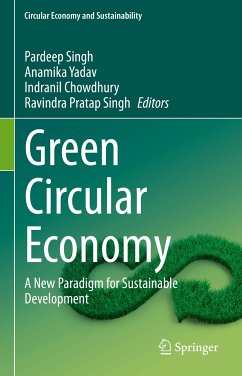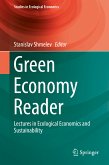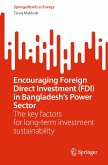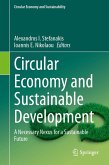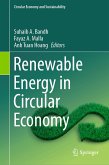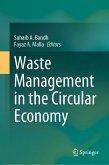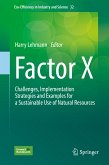This book highlights the concepts, issues and policies related to the circular economy. The chapters of this book are designed to include the theoretical approach to the green circular economy, sustainable supply chain and challenges in the green circular economy. The book is a step towards designing sustainable circular economy embedded production and management practices. This book also addresses the capability of green-lean productions and a circular economy to improve resource efficiency and address environmental sustainability issues.
Environmental sustainability is a hot topic in politics, science, and industry. There is a need to achieve economic, social, and environmental sustainability goals through adaptations of the green circular economy, which can help minimize greenhouse gas emissions, toxic pollutant releases, waste and energy and resource usage by employing renewable energy concepts and recyclable materials. The production processes must be resource-efficient and environmentally friendly, including green-lean manufacturing. Adopting a circular economy in manufacturing is less evident than green-lean management. However, systematic strategies to bridge this gap have yet to be devised.
There is an urgent need to fully explore the Circular Economy concept to attain resource and environmental goals for the sustainability of the environment in the present era of global climate change. Its framework's powerful strategies need to solve the problem created by linear economic growth through industrialization and gross economic growth. There is a need to improve the sustainability management capabilities in the manufacturing and industrial sector to support the circular economy and a need to examine the impact of green human resource management. This book proposes the combined approach of green-lean solutions and a green circular economy. Through this book, we try to produce the content and information ina compiled form to give the audience an understanding of the circular economy concept framework and challenges.
Dieser Download kann aus rechtlichen Gründen nur mit Rechnungsadresse in A, B, BG, CY, CZ, D, DK, EW, E, FIN, F, GR, HR, H, IRL, I, LT, L, LR, M, NL, PL, P, R, S, SLO, SK ausgeliefert werden.

